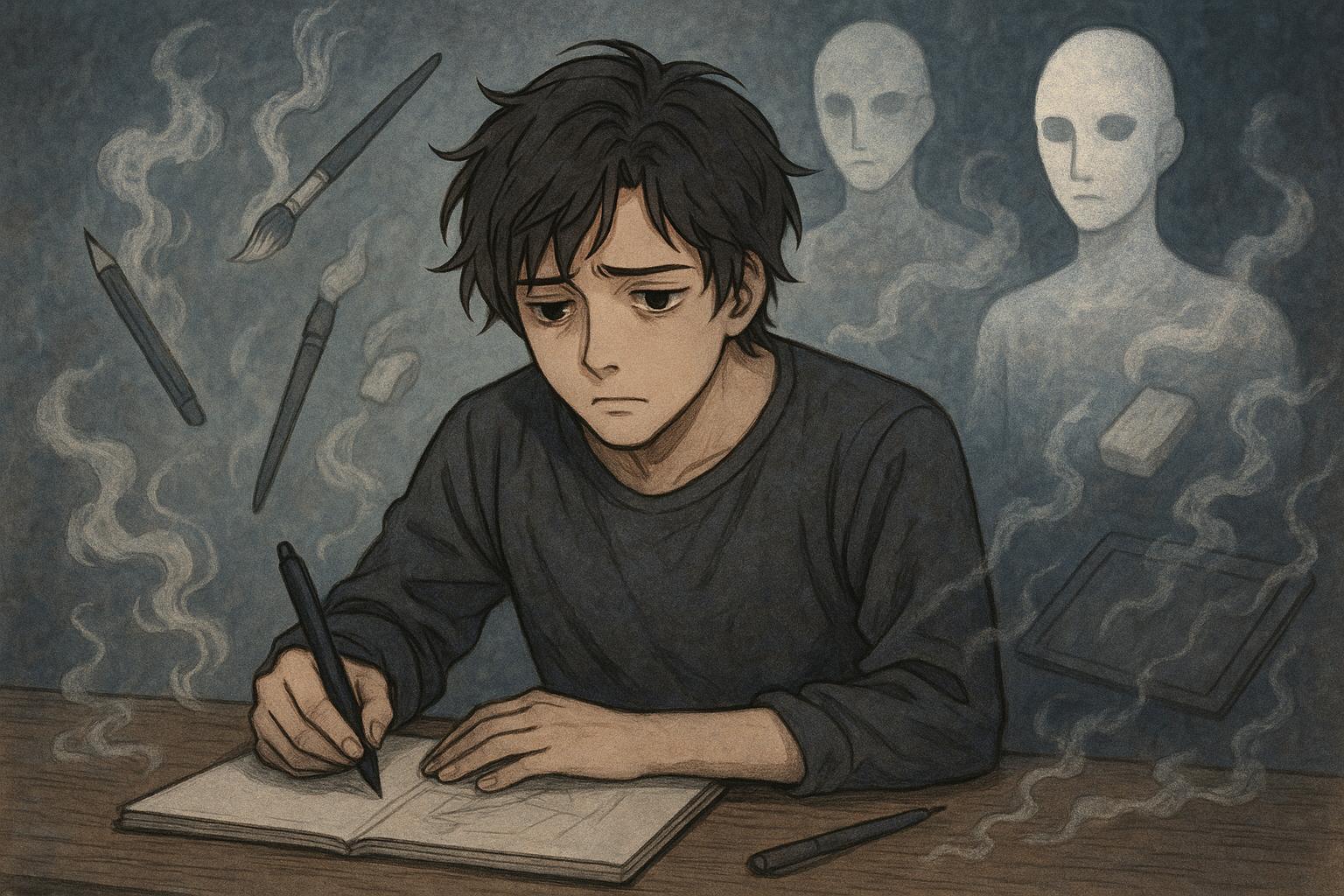The rise of artificial intelligence has had far-reaching implications across various industries, transforming the landscape for professionals and raising ethical questions about the future of work. As companies adopt AI technologies to increase efficiency, many workers in creative sectors find themselves facing job displacement and altered roles, fundamentally shifting the nature of artistic expression.
Mateusz Demski, a 31-year-old journalist from Kraków, Poland, experienced this shift firsthand when he was laid off from Radio Kraków in August 2024. With a decade's worth of freelance journalism experience—primarily focused on cinema and cultural topics—Demski was surprised to learn that the station planned to replace human hosts with three AI characters. Dubbed an "experiment" aimed at younger audiences, the AI personalities sparked outrage, particularly following an episode that featured a simulated interview with the late Nobel laureate Wisława Szymborska. The controversy ignited debates on the ethics of using a deceased person's likeness and the implications of AI in journalism. This incident underscores a broader concern reflected in a Pew Research survey, where nearly half of U.S. respondents expressed fears that AI would negatively impact the quality and integrity of news reporting over the coming decades.
Similar sentiments emanate from other professionals in creative fields. Lina Meilina, an illustrator from Bandung, Indonesia, has witnessed her workload plummet since AI tools became prevalent. Once receiving up to 15 commissions a month, she now struggles to earn a sustainable income, as clients increasingly opt for AI-generated artwork that can replicate styles with minimal human intervention. The issue of copyright also looms large; with weak regulations in Indonesia, Meilina now finds it arduous to protect her original creations from AI's ability to produce derivative works, further exacerbating her challenges as an artist.
The emotional toll of AI encroachment is palpable across various creative sectors. Annabel Beales, a copywriter from Southampton, lost her job shortly after her employer began relying on AI for content generation. Despite initially being reassured about her job security, she quickly found herself sidelined as her work transitioned to AI tools. Beales reflects on the implications of this shift for future generations; the prevalence of AI threatens not just individual careers, but the very essence of creative industries.
Voice actors, too, have felt the disruption of AI, as outlined by Richie Tavake, a veteran voice actor from San Francisco. Tavake recently found out that his voice had been uploaded into an AI platform without his consent, enabling others to generate audio featuring his likeness. This raises ethical considerations about consent and representation, particularly in a field where authenticity carries immense weight. The Screen Actors Guild’s ongoing strike is indicative of broader industry tensions, as it battles for protections against AI exploitation.
Jadun Sykes, a graphic designer from Wakefield, provides another poignant example of AI's encroachment in creative roles. After six years with his company, he was blindsided when HR informed him his role had become redundant due to automation. His subsequent leap into content creation showcases the shifting demand for skills as companies increasingly turn to AI for tasks traditionally handled by human workers.
The overarching narrative is one of anxiety and adaptation. Many creatives, while embracing the potential for AI to enhance their work, also express deep concerns about the long-term viability of careers in creative sectors. As AI technologies evolve, so too must the awareness and advocacy for ethical practices and regulations that protect human creativity and livelihoods. The call for regulation, spearheaded by professionals like Demski, serves as a reminder that while technology can streamline processes, it cannot replicate the nuanced understanding, emotional intelligence, and genuine experiences that define compelling storytelling and artistic expression.
Ultimately, the conversation surrounding AI is not simply about job replacement; it’s about safeguarding the integrity of the creative arts in an era dominated by machines. As the lines between human-produced content and AI-generated works blur, stakeholders must engage in robust dialogue to foster an environment where creativity can flourish alongside technological advancements.
Reference Map:
- Paragraph 1 – [1], [2]
- Paragraph 2 – [1], [3], [5]
- Paragraph 3 – [2], [4], [6]
- Paragraph 4 – [1], [7]
- Paragraph 5 – [1], [2]
Source: Noah Wire Services
